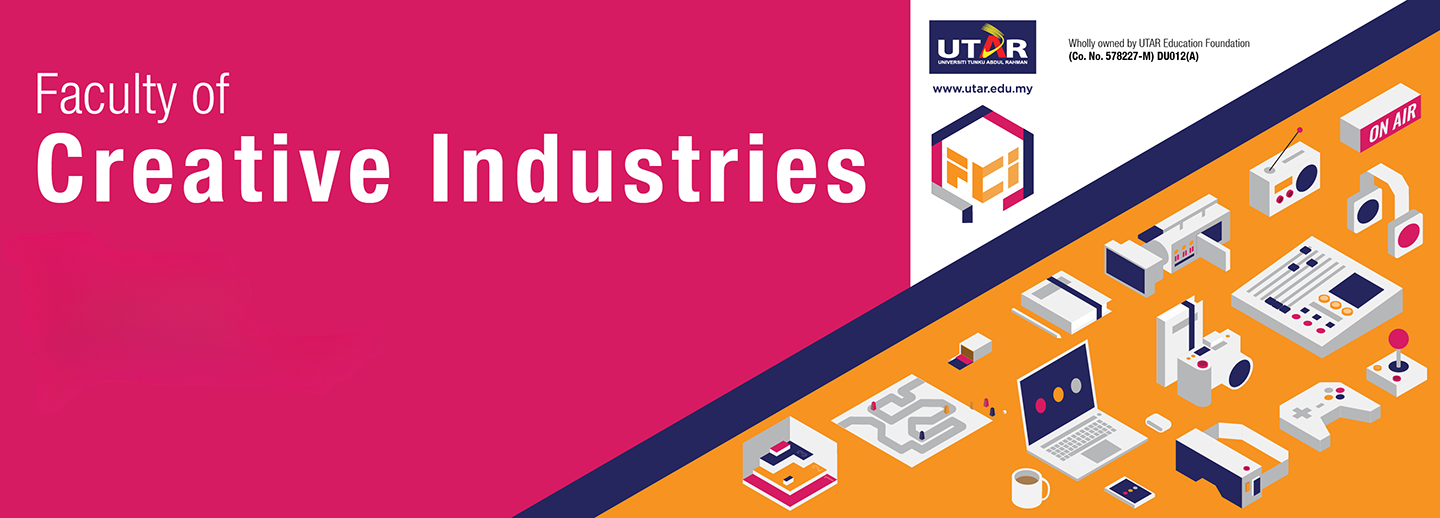
Doctor of Philosophy (Creative Arts)
Doctor of Philosophy (creative arts)
PROGRAM DESCRIPTION
The Doctor of Philosophy (Creative Arts) programme was officially launched in 2019 at Universiti Tunku Abdul Rahman, Sungai Long Campus. The Doctor of Philosophy (Education) programme offered by the Faculty of Creative Industries aims to have its core focus naturally in education with a slant towards aspects of creativity and technology, a prevailing theme in 21st-century education. With the world progressing rapidly, the doctoral degree would therefore be apt in view of the growing need to have professionals who are well-versed in the current multi-faceted field of education that is as challenging as it is demanding.
It produces education practitioners who are creative with practical skills capable of integrating digital technologies in educational settings. These practitioners will be able to lead with autonomy and interact with internal and external stakeholders in constructing creative practices through research that advocate professional and ethical practices in education with a positive attitude, entrepreneurial mind-set, and sustainable practices in their profession.
Graduates would be able to find employment as academics, curriculum coordinators, educational leaders, executive directors of education, educational researchers, and thought leaders working in schools, university colleges, universities, government, and non-governmental organisations, and think tanks.
PROGRAMME STRUCTURE
FULL-TIME STUDY PROGRAMME STRUCTURE
|
Year 1 Trimester 1* |
Year 1 Trimester 2* |
Year 1 Trimester 3* |
||||||
|
Code |
Name of Course |
Credit |
Code |
Name of Course |
Credit |
Code |
Name of Course |
Credit |
|
RESEARCH METHODOLOGY |
3 |
DJGA10100 |
THESIS** |
- |
THESIS** |
- |
||
|
THESIS** |
- |
|
|
|
|
|
|
|
|
TOTAL CREDIT |
3 |
TOTAL CREDIT |
- |
TOTAL CREDIT |
- |
|||
|
Year 2 Trimester 1* |
Year 2 Trimester 2* |
Year 2 Trimester 3* |
||||||
|
Code |
Name of Course |
Credit |
Code |
Name of Course |
Credit |
Code |
Name of Course |
Credit |
|
THESIS** |
- |
THESIS** |
- |
THESIS** |
- |
|||
|
TOTAL CREDIT |
- |
TOTAL CREDIT |
- |
TOTAL CREDIT |
- |
|||
|
Year 3 Trimester 1* |
Year 3 Trimester 2* |
Year 3 Trimester 3* |
||||||
|
Code |
Name of Course |
Credit |
Code |
Name of Course |
Credit |
Code |
Name of Course |
Credit |
|
THESIS** |
- |
THESIS** |
- |
THESIS** |
- |
|||
|
TOTAL CREDIT |
- |
TOTAL CREDIT |
- |
TOTAL CREDIT |
- |
|||
* Trimester I, II and III are long trimesters (12 weeks)
** Research work can start in parallel at any trimester as PhD trimester intake is throughout the year
The programme consists of 1 compulsory courses Educational Research Methodology The main requirement for awarding the PhD in Education is the completion of a substantial and original independent educational research work, The successful completion of this requirement is demonstrated through the production of a thesis, describing novel findings.
PROGRAMME OBJECTIVE & LEARNING OUTCOMES
Programme Educational Objectives (PEO)
1. Apply creative arts knowledge that analyze and apply the information, understanding and experiences to provide quality products and services to the public and private sectors locally and globally.
2. Lead and engage in teams in problem solving tasks across disciplines through effective communicative abilities.
3. Practice ethical and professional values in providing services to the recipients and provider of the creative arts related industries.
4. Apply the logical reasoning and critical thinking in providing multiple solutions to authentic problems in their field of study.
5. Synthesize problems by applying knowledge and understanding of laws, theories and principles of creative arts.
6. Manage information and engage in life-long learning
Programme Learning Outcomes (PLO)
Graduates will be able to:
1. Demonstrate continuing and advanced knowledge in creative industries and have the capabilities to further develop or use in new situations or in multi-disciplinary contexts
2. Investigate and appraise problems in the creative industries critically particularly in situations with restricted information and to provide explanation through appropriate tools and systems.
3. Appraise obtainable information and research evidence and apply it in the creative industries framework.
4. Plan and perform research undertakings professionally, ethically and responsibly;
5. Report findings in both written and oral forms in order to contribute to the progress of knowledge in the industry
6. Display leadership qualities through communicating and working effectively with peers and stakeholders
7. Integrate information for lifelong learning
For more information for this programme, please go to https://ipsr.utar.edu.my/PhDCA.php

